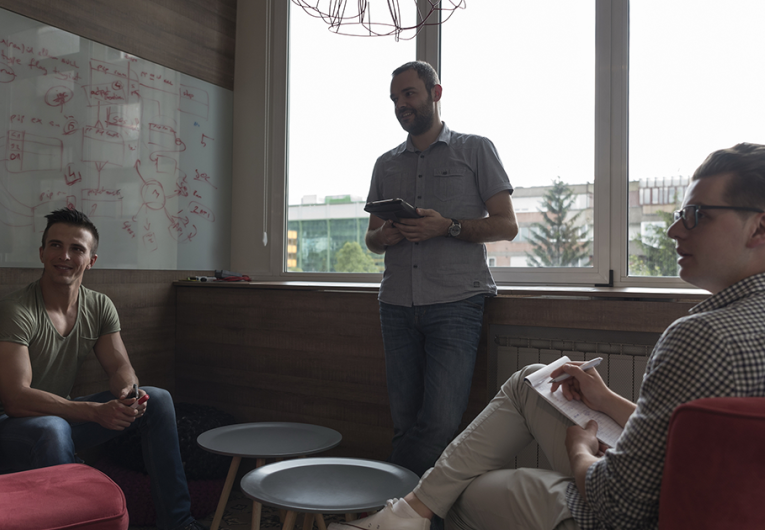
Managing Your Business Travel in This New Normal
As more travel opens up in this latest phase of the pandemic, you might be trying to decide if it’s a good idea to start taking business trips again.
And like a lot of COVID-era related questions, the answer depends on the specifics of your situation – the details of the trip and your individual health.
“It’s important to take an analytic approach to planning business travel during Covid-19,” says TravelPerk, a global travel management platform, in a guide posted on its website.
If you’re considering rescheduling a trip that was canceled during the pandemic shutdown or looking at new out-of-town marketing or sales visits, here’s some advice from travel planners and healthcare experts on traveling during COVID-19.
Check on specific conditions at the destination.
Review the public health guidelines in the area you’ll be traveling to, including the most current levels of the virus in the city or town.
If you can find it, research specific numbers in each area where you’ll be spending time, by zip code or by local government websites, including the controls or lack of precautions in place in that location.
“The more cases at your destination, the more likely you are to get infected during travel and spread the virus to others when you return,” says the Centers for Disease Control and Prevention.
Also, find out how your accommodations, i.e., hotel, Airbnb, etc., have been affected and are responding to the pandemic. Also have a clear picture of conditions and guidelines at the expo site, conference center, business, client’s or any other location you’ll be visiting during the trip.
“Some travel activities, like staying at guest lodgings, can increase your risk of getting COVID-19,” the CDC cautions. “Your chances of exposure are higher if you come into close contact with others, especially people you don’t know, or use shared public facilities.”
Assess how your health and others would be impacted by your trip.
Perform a risk analysis to help guide your decision. Gather and review the factors that could impact your health and that of others in your household, your staff onsite or anyone in “your bubble,” upon your return.
Look at the length of the trip and the likelihood of community spread over that timeframe, as well as any individual health issues you might have that could increase your risk for severe illness if the virus is contracted.
“In general, risk assessments weigh likelihood and impact,” says TravelPerk in its Business Travel & Coronavirus Information Center page. “How likely is something to occur? What is the impact if it does occur?”
Decide the best fit for your mode of travel.
A person’s risk of contracting the virus increases with the higher number of people they’re in contact with so the lowest risk of transportation, according to the CDC, is likely driving alone to your destination vs. flying, which takes you into crowds.
“Air travel requires spending time in security lines and airport terminals, which can bring you in close contact with other people and frequently touched surfaces,” the CDC warns.
However, the agency says, most viruses and other germs do not spread easily on flights because of how air circulates and is filtered on airplanes, adding that social distancing is difficult on crowded flights.
“Sitting within 6 feet of others, sometimes for hours, may increase your risk of getting COVID-19,” the health agency says. “Factors that may increase risk of air travel include flight duration and whether others onboard are wearing masks.”
Take the recommended precautions during your trip.
Planning ahead is key for every stage of your trip. Among other things, the CDC recommends business travelers avoid public areas during travel if possible.
Schedule travel to limit the distance traveled and need for overnight lodging, the agency says. But if multi-day travel is necessary, the CDC advises, identify hotels or other accommodations that disinfect rooms between stays and regularly disinfect surfaces in common areas.
So, is it safe to stay in a hotel? The answer, says Thomas Russo, chief of the division of infectious disease at the University at Buffalo, is highly individual.
He told Business Insider that if he was traveling for business, and the trip was important and necessary, he would feel relatively safe staying in a hotel, using the proper protective measures like wearing a mask, distancing, disinfecting, and hand hygiene.
Ideally, you’d want a room that no one has stayed in for a day or two, he says, so he advises business travelers to check to see if that type of room is available to request.
Also, while you’re in the hotel, Russo says, wear a mask during the check-in process, when you’re going in the elevator and even the stairwell.
“I'm a big fan of mask use because this magical six-foot zone is based on probability,” he says in the Business Insider post by Emily Hochberg and Alesandra Dubin.
“The closer you are to someone, and the longer you're close to someone that's infectious, the more likely you are to get infected."
The trends, insights, and solutions you need to grow your business.
By signing up, you’re subscribing to our monthly email newsletter, The
Wire. You may unsubscribe at any time.
Your information stays safe with us. Learn more about our privacy
policy.











![[#MSP_NAME#] Logo](/themes/sparklight_business/images/transition-logos/migration-banner-logo-[#MSP_CD#].png)
